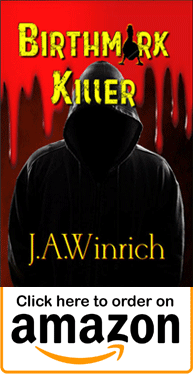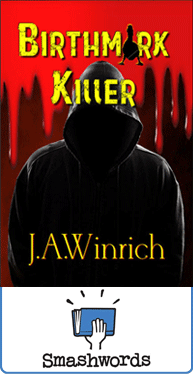For me, the query letter is much harder to write than the book.
First, last clichés:
Not to mince words – To speak plainly, avoiding giving offense. This expression, also used as not to mince matters, dates from
Shakespeare’s time (see Othello and Antony and Cleopatra) and in effect transfers the cutting into small pieces of some object, like meat, to moderating or softening one’s language.
Get into Hot Water – Get into embarrassing situations, or get in trouble. Probably the allusion here is to water hot enough to burn one. Lord Malmesbury used it in a lette in 1765. However the term appeared in print more than two centuries earlier. In 16th and 17th centuries it was put as “to cost hot water.” Possibly already a clichè by the time it appeared in Richard H. Dan’s Two Years Before the Mast (1840).
Shoot yourself in the Foot – To hurt one’s own cause by mistake. This phrase calls up the image of someone holding a firearm pointed down and accidentally discharging it. Although the effect is similar, it must be distinguished from injuring oneself intentionally in order to avoid military service (or to be sent home from the front).
So, how many did you find?
Can you submit to more than one agent at a time? Yes. First you comprise of a list of all of the appropriate agents you could send your query to. Then submit to them no more than 8 to 10 agents at a time. Why? What if your query letter is not an eye catcher? If you’re rejected the first set, you have a way to revise your query and try again.
What is a query letter? It’s a written one page pitch to catch an agent’s eye to want to read your manuscript. You don’t want to still be wet behind the ears regarding a query, so go to www.guidetoliteraryagents.com/blog and read the query’s Chuck Sambuchino as for references.
A one page query letter has three parts: 1.) The introduction paragraph. You want to make this short and sweet. The first sentence should have details about your work; i.e. genre, word count, title. The second sentence is your connection line which is why you chose the particular agent. For example: I saw you speak at the xyz workshop and I think you would like my manuscript because… 2.) The pitch itself. Talk about your story in a brief, descriptive way (3 – 10 sentences), which will include the tone of your work and conflict. However, do not reveal the ending. This paragraph is similar to a DVD back or book jacket flap. Don’t use questions in a query letter. Remember, generalities sink a query, specifics light it up. You want to paint pictures and illicit emotion in an agent’s mind. More about pitches below. 3.) Your biography paragraph or if you have nothing to say, just close out the letter. Your biography would include writing associations you belong to, ever paid to write, short stories you’ve written and received payment for, your platform (how you would market the book), if you have a platform. A non-fiction query can go over one page if your biography forces it to do so with a list of your credentials.
A verbal pitch to an agent is your logline. A one sentence summary of your work.
There are seven parts of a Fiction Query Pitch in a letter:
1. – Introduce the main character(s); 2. Let us know something unique about them and what they desire; 3. Show us the inciting incident; 4. Tell the basic plot of the book – the major conflict; 5. How does the plot get complicated (must get worse before better); 6. Have an unclear wrap-up – leave them with a cliff-hanger and don’t tell use the ending of the work. Do not use anywhere in your query rhetorical questions. And do not end with a question for sure. 7. Throughout make sure the stakes are included – What can go wrong? You can have the stakes in the beginning, middle, or end of your pitch section of your letter.
You don’t want to just write this happened then this happened because this would be dull as dishwater. You want your query letter to let the agent know an example of your writing and to want to read your work. So study other queries and write and re-write and have it critiqued.
More about the Nov. 22nd workshop in the next blog. Until then,
Keep Writing,
Julie
Want more information on queries? Click below:



